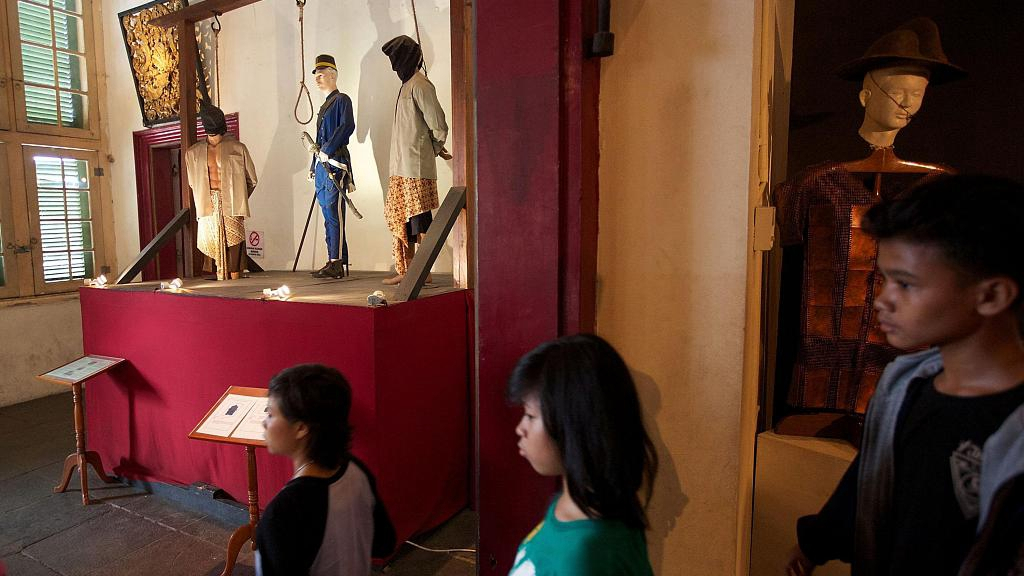
Indonesian tourists walk past a tableau at the National History museum in Kota Tua, Indonesia, a city built under Dutch colonial rule, June 16, 2013. /VCG Photo
Indonesian tourists walk past a tableau at the National History museum in Kota Tua, Indonesia, a city built under Dutch colonial rule, June 16, 2013. /VCG Photo
A lawsuit accusing the Netherlands of executing Indonesians in 1947 during the final years of Dutch colonial rule has been given the go-ahead.
An appeals court in The Hague ruled on Tuesday that a lawsuit brought by five Indonesians who hold the Netherlands responsible for the execution of their fathers by Dutch soldiers in 1947 must be heard.
The Dutch state has claimed that the acts in its former colony had happened too long ago for it to be held responsible.
But the court rejected this, citing the exceptional level of violence and the extent to which the Dutch state is culpable.
The alleged execution of the five men occurred during the Indonesian war of independence, which started after the end of World War Two in 1945 and ended in 1949 when the Netherlands recognized the independence of its former colony.
During the conflict, Dutch soldiers executed opponents without any form of trial and tortured prisoners during interrogations, the court said.
A lower court will now hear the case, in which the five Indonesians are suing the Dutch state for compensation, and will try to establish whether the complainants are in fact children of executed men.
This will be hard to prove, the court said, as the Dutch did not register who was shot and when during the conflict, and also made no effort to properly document this once peace was restored.
If their identity is confirmed, the five men and women would be entitled to compensation for the costs of their livelihood during their childhood years.
The court in The Hague also upheld an earlier verdict on Tuesday that an Indonesian man who was tortured by the Dutch was entitled to 5,000 euros (5,500 U.S. dollars) in compensation.
Source(s): Reuters